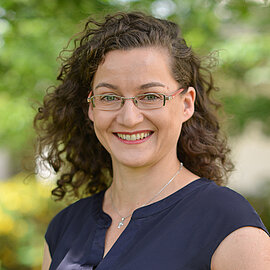The federal state of Saxony-Anhalt has drafted a bill that seeks to implement far-reaching reform to the agricultural land market. A recent policy brief issued by the DFG-funded research group FORLand takes a critical look at the bill, which has recently been submitted to the state parliament.
The bill was submitted to the state parliament of Saxony-Anhalt in November 2020 and seeks to enforce tougher regulation of, e.g., the state’s agricultural land market and the acquisition of shares in agribusinesses. If passed, the new law will include measures to prevent dominant positions on regional land markets, and to better regulate the way in which shares are acquired in agribusinesses. The official objective is to secure value creation and employment in rural areas.
IAMO director Prof. Alfons Balmann criticised the bill in a recent policy brief issued by the FORLand research group. He believes that the bill is based on a portrayal and vision of agriculture in Saxony-Anhalt that do not reflect the facts. Key aspects of the state’s agricultural structure and, in particular, the foundations of its agricultural success to date - such as entrepreneurship, efficiency, mobility and cooperative principles - have been ignored or misrepresented. For example, the importance of large farms and newcomer investments for the creation of value and employment in rural areas has been largely overlooked. Questionable criteria for land ownership have been defined which would mean that in half of the state of Saxony Anhalt agribusinesses possess locally a dominant position. Furthermore, no evidence was provided to back up the supposed objectives and consequences of investors purchasing land and shares. Instead, the bill promotes peasant farming with small and medium-sized full-time and part-time farms, despite the fact that such farms have failed to establish themselves over the past 30 years and contribute little to value creation and employment.
According to Balmann, “The way the current situation is presented and the proposed model fail to recognise the actual strengths of agriculture in the state and ignore the basic functioning of the agricultural land market.” The draft bill would not adequately address the real challenges the structure of agriculture is facing such as the protection of the environment, climate and biodiversity, demographic change, digitalisation and the participation of the rural population. In fact, the proposed measures would contradict the bill’s apparent objectives and threaten the future contribution of agriculture to the creation of value and employment in rural areas.
The policy brief is available in German and can be downloaded for free at: https://ageconsearch.umn.edu/record/308576
Text: 2,949 characters (incl. spaces)
Further information
The FORLand research group is funded by the German Research Foundation (DFG) and works together with IAMO to study the efficiency and regulation of agricultural land markets. More information can be found at: https://www.iamo.de/en/research/projects/details/forland/



